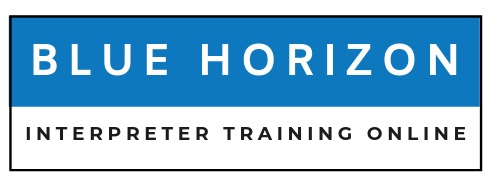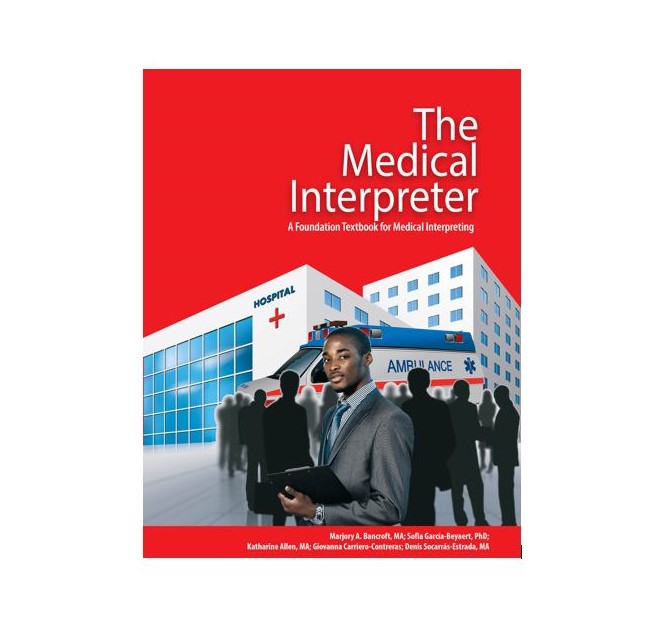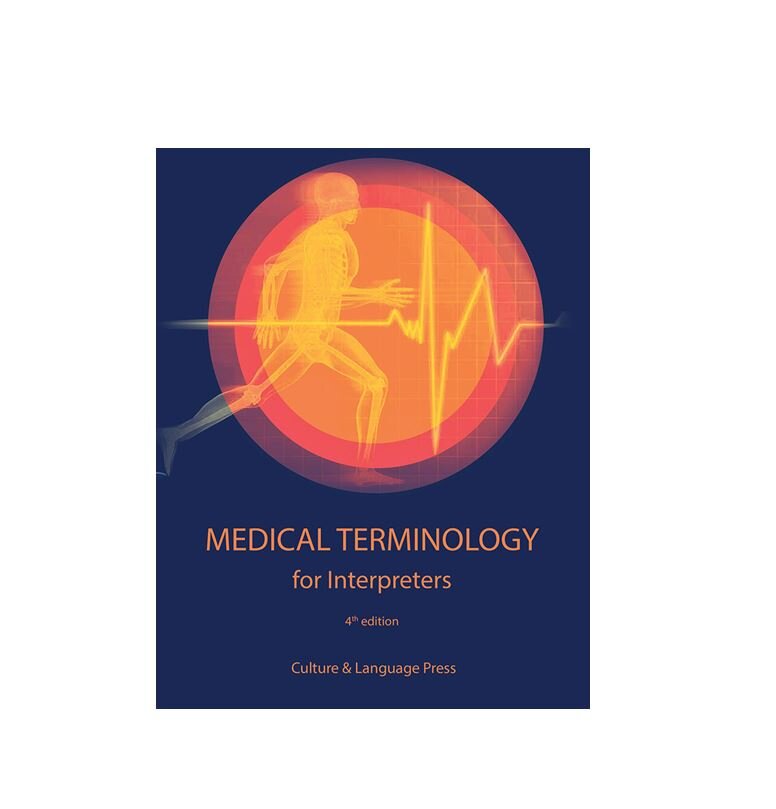Frequently Asked Questions (FAQ)
Quick Tip:
Scroll to the bottom of this page for Technical Requirements for our online programs.
General interpreting questions:
How do I become an interpreter?
First, interpreters need to be 18 years old, have a secondary or high school diploma and be bilingual. Increasingly, the industry standard here in the U.S. also requires interpreters to have completed a 40- to 60-hour certificate program before being able to work as a professional interpreter. Some organizations also require certification.
What if one of my languages isn’t good enough yet for interpreting?
Try strengthening your non-native language before taking our programs. Some options for language training are: community colleges or universities, conversation groups (such as free groups sponsored by public libraries), etc. If your weaker language is English, start with grammar-based courses. Once you have basic fluency follow your passions and register in almost any community college course because it will strengthen your oral and written skills. Listen to television, radio shows, podcasts, videos and more in your weaker language. Read books, magazines, online articles and anything else you enjoy. Find partners to practice speaking with. Everything helps. Every six months, take a language proficiency test—we recommend Language Testing International (LTI)—to determine your level. Ideally, you’ll start interpreting once you’ve achieved a minimum level of Advanced Low in all of your working languages.
What are job prospects like for interpreters?
It’s never been better! According to U.S. Dept. of Labor, Bureau of Labor Statistics, the job outlook increase from 2019 to 2029 will be 20%. That’s an extremely high growth rate compared to average! About 15,500 jobs will be added in the next decade. The most common jobs listed for interpreters are in schools, hospitals, courtrooms and conferences centers, and a huge number of language companies engage interpreters.
In 2017, more than 44.5 million immigrants resided in the U.S. – 13.7% of the total population. 1 in 7 U.S. residents is foreign born. 22% of people ages 5 and older in the U.S. speak a language other than English at home and 40% of these U.S. residents are Limited English Proficient (LEP). In 2015, more than 25.9 million U.S. residents were LEP (9% of the total population). These individuals need interpreting and translation services.
How much do interpreters earn?
It depends on the type of interpreting you’re doing and what type of interpreter you are. According to U.S. Dept. of Labor, Bureau of Labor Statistics, median pay for interpreters and translators in 2020 was $52,330 or $25.16 per hour. Typical entry-level education was a bachelor degree. The U.S. Bureau of Labor Statistics says most interpreters and translators work full time during regular business hours. In general, there are two categories of professional interpreters: employed and self-employed. If you’re a freelancer, you are self employed and you get paid by the hour. If you are employed, you are either a staff interpreter (which means that interpreter is your job title and interpreting is your main job) or bilingual staff (which means you have a different job and interpreting is just one part of your job). Contract (self employed) interpreters typically work for several organizations. They drive to different locations and their pay varies according to the assignment. At the moment, most freelance spoken language interpreters earn anywhere from $15-$30 or more per hour. Pay varies by language as well. Pay will be a bit less for educational interpreting on average and somewhat higher for medical and legal interpreters. It’s often highest for nationally certified medical interpreters and court-certified interpreters. Conference interpreters, however, can often earn $600, $800 or even $1,000 per day.
What is the difference between an interpreter training certificate and interpreter certification?
A certificate is a credential that shows you have completed a program or test. For example, if you complete a training program, a language proficiency test or a school interpreter orientation, you might get a certificate. Certification can only be awarded by state or federal government agencies (such as the community interpreter certification in Washington state or state and federal court certification programs) or professional associations (such as the two national medical interpreter certifications and the Registry of Interpreters for the Deaf for sign language). We offer certificate programs and plan to offer certification prep courses.
How do I become a medical certified interpreter?
Medical interpreters who have passed one of the two national certification exams (see below) are known as certified medical interpreters or certified healthcare interpreters. The two national exams have different formats but both are valid. (If you are thinking of working with a specific organization, check with it before starting your certification preparation to determine if the organization prefers one certification exam over the other.)
How do I become a court certified interpreter?
Court certified interpreters have passed an exam given by a state or federal interpreter certification program. These exams usually have extremely low pass rates, about 15% on average (though it varies state to state and year to year). At the federal level, only Spanish is currently offered and the pass rate is about 4-5%. Extensive training and practice is required to pass. Certification exams vary at the state level for other languages. Exams exist in up to 20 languages, but each year any given state offers that exam in a very limited number of languages. Some states recognize the certifications of other states (known as “reciprocity”). The National Center for State Courts (NCSC) is a good place to start researching court interpreter certifications.
Our online interpreter training programs:
What are the differences between face-to-face and online interpreter training? Which is better?
There are advantages to both formats.
On site interpreter training provides more interaction and networking opportunities with the trainer and fellow training participants. (Plus, we serve a light breakfast and snacks at our Columbia, Maryland workshops!)
Online interpreter training offers courses on your schedule, at your convenience. In addition, you’ll save on traveling expenses.
Either way, quality is key. Before signing up for a training program, learn about the training organization, course content and trainer. Ask the training organization if its courses carry continuing education units (CEUs) or if its foundation training has been approved as preparation for medical or court interpreter certification.
Why should I take a CCC/Blue horizon online interpreter training program?
CCC’s online learning platform, Blue Horizon, brings you the best online training for interpreters in the U.S. You will learn from industry experts, dive into a wealth a interactive activities and have access to the industry’s leading interpreter training publications. You will actually learn to interpret and become professionally competitive. If you already interpret professionally, you can enhance your skills and knowledge and get CEUs.
CCC is the only U.S. national training agency for community and medical interpreting. Our courses are created by national and international experts in the field. CCC has been in business since 2001, with over 400 licensed trainers for its programs in 43 U.S. states, DC, Guam and six other countries. CCC also publishes high quality interpreter training textbooks, workbooks and instructor’s guides under our imprint, Culture & Language Press.
What are the admission criteria for CCC/blue horizon’s training programs?
Training participants should meet the following criteria before registering for our programs:
Be 18 years or older.
Hold a high school diploma or equivalent.
Speak and read English and speak/sign at least one other language fluently.
can sign language interpreters benefit from ccc/blue horizon’s online training programs?
Yes. Though created by spoken-language interpreters, our programs are designed for spoken-language and sign-language interpreters. However, please note that references to “educational” interpreting in our programs refers to “community interpreting in schools” (for parents) and not K-12 interpreting (one-on-one, for children).
attendance policy for live online training programs
In order to receive a course completion certificate, participants in our live online programs must submit all applicable documentation; complete all coursework requirements; be visible on their webcam for the entire program; and complete the applicable attendance requirement:
For live online programs shorter than 10 hours, participants must attend all live scheduled hours.
For live online programs 10 hours or longer, participants may miss no more than 10% of the total live scheduled hours. (For example, attendance of 18 hours is required for a 20-hour program; attendance of 36 hours is required for a 40-hour program.)
Disruptive behavior policy for live online training programs
In order to uphold the collaborative nature of our online training programs, Cross-Cultural Communications reserves the right to remove any participant for abusive or aggressive behavior, spoken or written, towards CCC staff, trainers or other participants. We recognize that the past year has been difficult for everyone. However, our participants, trainers and staff have the right to a safe and respectful learning and working environment. We thank you for your understanding.
What 40-hour foundation programs do CCC/Blue Horizon offer?
The Community Interpreter® Online, and its medical-only version, The Medical Interpreter Online, are approved 40-hour foundation programs for medical interpreter certification. They also allow program graduates to meet the minimum training needed before starting to work as a professional interpreter in a hospital, school system or social services. In either program, interpreters will study a national code of ethics and standards of practice, interpreting skills and protocols, intervention and cultural mediation, what makes a “professional” interpreter and much more. The programs are interactive too. They involve practical, hands-on activities such as role-plays, quizzes and self-assessments.
Whether you’re an interpreter just starting out or an experienced interpreter who needs a recognized certificate, come to us and get the best foundation training programs available.
What CCC/Blue Horizon online training programs count toward the 40-hour foundation training required to apply for medical interpreter certification?
The Community Interpreter® Online or The Medical Interpreter Online or any combination of our specialized programs for medical interpreting that add up to a total of 40 hours.
Do CCC/blue horizon’s online training programs offer continuing education units (CEus)?
Yes, although the CEUs offered for each program vary according to course length and content. We are constantly applying for CEUs for our programs.
Let us know if you’re looking for a particular CEU that you don’t see yet on our website.
how long is course access for ccc/blue horizon’s online training programs?
Course access time limits vary by course.
You will have 180 days from course purchase date to complete The Community Interpreter® Online or any other 40-hour foundation program.
You will have 90 days to complete courses 5-39 hours in length.
You will have 60 days to complete courses fewer than five hours in length.
Once a course is purchased, course access cannot be paused.
Course completion extensions can be purchased for the following time periods and prices:
Once a course extension has been purchased, please email us or complete this online form including:
Name of the self-paced course to which you would like to apply your course extension
We will reply in 1-2 business days, confirming that the course extension has been applied to your self-paced course.
Participant accounts that have been inactive for more than 365 days will be deactivated.
course materials
All course materials are included in the course price. Materials vary by course and may consist of downloadable documents in Word and PDF formats, videos and audio files. In addition, access to some of our publications in ebook format, (for example, The Community Interpreter®: An International Textbook, The Medical Interpreter: A Foundation Textbook for Medical Interpreting and Medical Terminology for Interpreters) is included with the purchase of some of our longer self-paced courses. Access to our publications in ebook format coincides with the length of course access, with the exception of our 40-hour foundation programs. Participants who purchase access to The Community Interpreter® Online or any other 40-hour foundation program will have permanent access to the accompanying publication(s) in ebook format.
Course Final Assessments
Some courses require passing a final assessment in order to receive a course completion certificate.
You will have three attempts to pass the final assessment (a passing score is 80% or above) for courses that require passing such an assessment in order to receive a course completion certificate. Participants who do not pass on the third attempt are required to submit a written request to re-take the entire course. If the course is still active (i.e. the course time limit from date of purchase has not expired) the participant will be required to re-take the entire course and will be given three more attempts to pass the final assessment. If the course time limit has expired, the participant will be required to purchase a course extension prior to re-taking the course.
The final assessment passing score for courses up to 39 hours is 80%
The final assessment passing score for courses 40 hours or longer is 75%.
Course Completion Certificates
A course completion certificate will be automatically generated and accessible upon completion of a course. You should download and save this certificate for your records.
Technical requirements for online training programs:
What are the technical requirements for CCC/Blue Horizon’s online training Programs?
In order to take our courses we recommend downloading and using the latest software available to your desktop or laptop computer. Please update your device regularly for best performance.
Browser
We recommend using Chrome or Firefox. Please do not use Microsoft Edge, Safari or Opera to access our courses.
Disabling Browser Pop-up Blockers
Our self-paced courses are packaged in SCORM files which, when opened, appear in a separate browser window. In order to view these files you must disable your browser’s pop-up blockers and allow pop-ups from our Blue Horizon Online Learning Platform. Learn how to disable pop-up blockers. Specifically, learn how to disable pop-up blockers for Chrome and for Firefox.
Clearing Your Browser’s Cache
At times your browser may not be able to load our Blue Horizon Online Learning Platform due to interference from cookies stored in your browser. When this happens, we recommend you clear your browser’s cache, restart your device, then access your course again. Learn how to clear your browser’s cache.
Devices
Our self-paced courses can be accessed on desktop and laptop computers. We do not recommend using tablets or smartphones.
Internet Connection
A high speed internet connection is required to access our courses. (Minimum required speed: 5 mbps upload/10 download) Test Your Speed.
Sound
Please use headphones for best sound quality.
Audio and Video Recording Device
At a minimum, you will need a recording device that can store up to one hour of recording time to do many of the self-assessment activities in our courses. Most smartphones have a recording app. Ideally, you will also have a video recording device.
Other Equipment
Earbuds with a built-in microphone or headphones with a built-in microphone are strongly recommended. At the very least, earbuds are recommended for use with a computer or external microphone.
For our live online courses, you also need a microphone and a webcam if they are not already built into your computer. Most laptops come with both built in. If they are not built into your computer or if you want to improve your audio or video input there are many inexpensive webcams and/or microphones that are available. Many webcams have a microphone built into them so you can acquire or improve you audio and video capabilities with just one purchase.
For some activities you may be required to record your own practice interpreting sessions. When doing this as a class activity online with the instructor the interface we will be using will allow you to record whatever you say during the exercise. If the activity is a homework assignment that you have to record and then send to the teacher you will need to be able to record on your computer device, tablet or smart phone. Smart phones and tablets normally come with an application that allows you to do this so this will be the easiest method for most and this is what we recommend because it is simple and it works. Most PC desktops and laptops as well as their Mac counterparts come with free recording software too. If you have a Mac the free GarageBand application will let you record easily. If you have a PC you will need to see what recording software comes with the version of Windows you are running.
Do you still have questions?
Feel free to give us a call at +1 410-312-5599 or submit your questions through our website. We’ll be happy to clarify.







